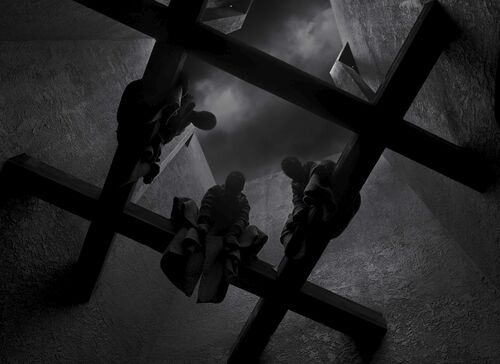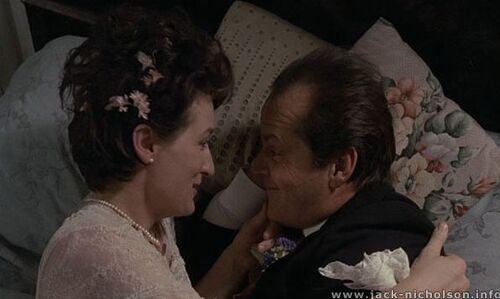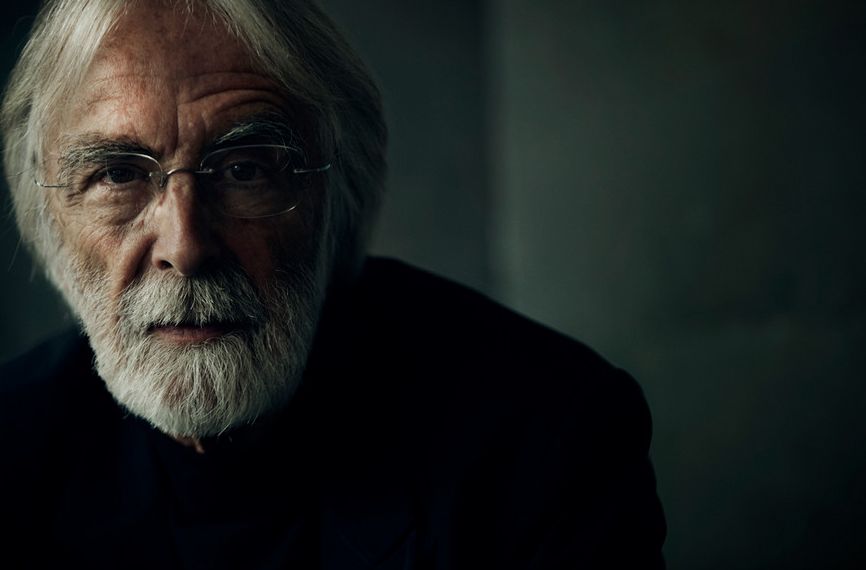
Exploring Michael Haneke: The Piano Teacher
 The way in which Michael Haneke films familial discontent has always fascinated me. Less than four minutes into his 2001 film, however, Haneke illustrates his most disturbed family to date.
The way in which Michael Haneke films familial discontent has always fascinated me. Less than four minutes into his 2001 film, however, Haneke illustrates his most disturbed family to date.
Nestled between the opening credits of Michael Haneke's The Piano Teacher, Isabelle Huppert is shown engaging in a mutually abusive interaction with her mother, played by Annie Girardot. Not only do the two strike each other throughout their exchange, but they are also incredibly emotionally manipulative. The relationship is portrayed to the audience in an incredibly powerful way. In mere minutes, Haneke illustrates that the protagonist of this film is being held captive in her mind and in her home. In her home, that she shares with her mother, Erika is imprisoned by a set of expectations that she has never been able to meet throughout her life. One is instantly able to discern that Erika has clearly had an ungraspable bar set just above each success she has enjoyed throughout her life. Though her mother speaks highly of her daughter and her career, she never seems truly pleased with her; she is domineering then submissive with every interaction. Erika has internalized her mother's attitude, as she is unflinching and demanding in her career as a piano teacher at the well-respected Vienna Music Conservatory. She never smiles, even to her students and expects an expert level, which each of them seems to consistently fall short of, much like Erika herself can never match her mother's expectations.
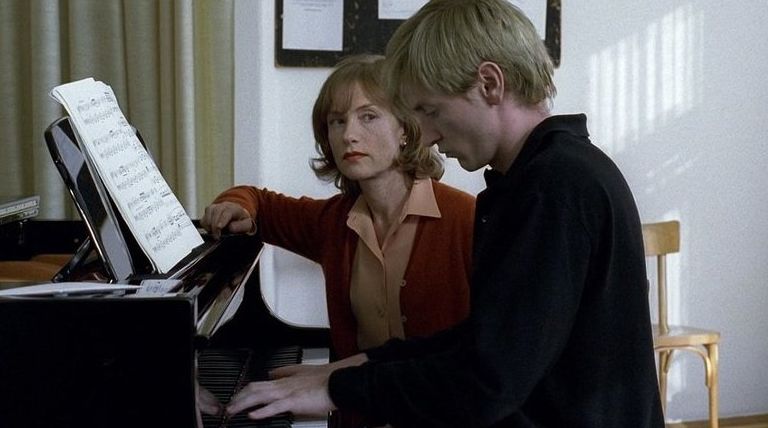
There exists another facet of Erika's being that she keeps well-hidden. No one would possibly imagine by looking at the respected knowledgeable professional that she frequents porn shops to fill her fascination with the sexual preferences of men. Her mere presence in the porn shops makes the men that fill it uncomfortable, a feeling of intimidation Erika seems to enjoy bringing about. Erika is constantly asserting her dominance over the men in her profession, no doubt out of the sexism rooted in her profession as an instructor. Erika goes to great pains to establish herself as a non-feeling person who has an iron grip of control over her emotions. Along with her exploration of the sexual desires of men, Erika also self-mutilates, cutting herself vaginally before going to sleep in the bed that she shares with her mother. It is obvious that Erika lives two starkly different lives within the same existence. She is able to keep her worlds apart by allotting specific times to each diverse activity. The clear line she has drawn between the different versions of herself comes to a halt when she meets an attractive young man with some musical talent who makes it clear almost immediately to have feelings for Erika, and who will stop at nothing to gain admittance to her teaching. From the first time we see Walter and Erika in frame together, he is seen hazily in the background staring longingly at Erika playing the piano in the foreground. Walter's desire for Erika is as clear as her intention to keep him away from her. Eventually, Walter's persistence coupled with Erika's longing for companionship and a counterpart to her own sexual fantasies, the two begin a sadomasochistic relationship. Having no opportunity to carry on a healthy relationship throughout her life, Erika is unable to make any union with Walter work. Never having a mutually loving relationship modeled for her, Erika perpetuates all she knows by seeking fulfillment of her own desires and giving no regard to the consent of Walter.
Michael Haneke takes the source material, a rich novel of the same name by Elfriede Jelinek, and brings its musical influence to film. The abrupt breaks and pauses throughout the opening, especially, make a melodic spectacle, a feast for all the senses. The shot composition throughout the film is as majestic as it is deliberate. Haneke frames Huppert's Erika in such a way that it is clear to see she is of the world, but not a part of it. She is made to be seen as much of the outcast as she feels she is herself. The alienation of Erika is masterfully exacted by Haneke, allowing the audience to understand her psyche and the extent to which she is a prisoner of her own mind. Erika is a victim of her circumstance, a participant in a game she doesn't know how to play—life. Haneke proves commitment to the themes that pepper each of his films in The Piano Teacher. Expertly zoning in on the disconnection of humanity, Haneke illustrates the extent of our disconnect by showing Huppert walking through throngs of people in a mall, each completely oblivious to the existence of those around them. My favorite aspect of the films of Michael Haneke is how expertly he can turn the camera onto the audience. His films encourage us to realize that we are not unlike the characters in his films that amble through life with little concern for those we share this existence with. Human disconnection though explored through every film of Haneke's I've seen yet, remains fresh and important, a concept that begs exploration as it leads to some of the worst problems of humanity.
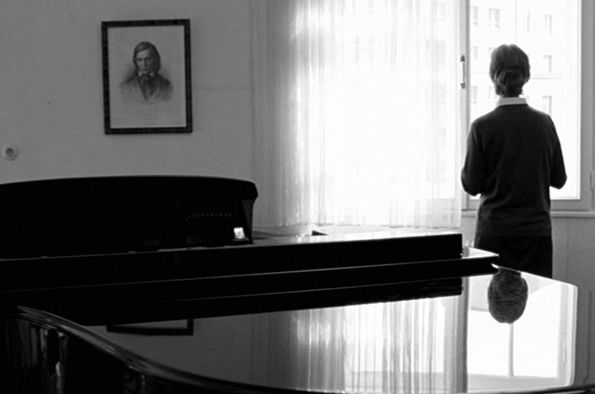
I find the ending of Haneke films to be consistently poignant and meaningful, despite their ambiguity. is one of my favorite of his endings as it uniquely illustrates the uncertainty of our direction in life. We don't know what will happen, if anything, between Erika and Walter. We know she has been deeply hurt by him, but yet she still seems indebted to him. She is so hurt by him and his actions that she causes herself harm in a public way, yet she seems so fragile around him that she may allow herself to give in to his advances were he to make any. Haneke leaves ample room for interpretation, leaving some pleased to imagine what happens next while infuriating others, a concept not foreign, or uninvited, to Michael Haneke.
